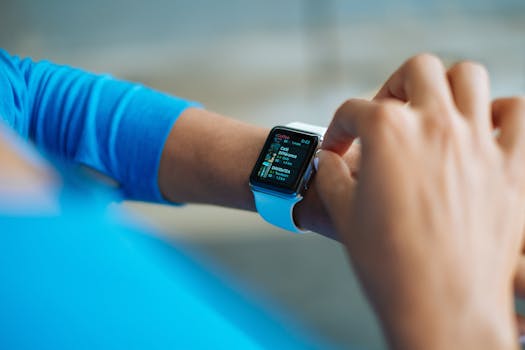The Future of Health Tech: Wearables and Gadgets in 2025
Focus Keyword: The Future of Health Tech

The Future of Health Tech is an exciting and rapidly evolving field, with wearables and gadgets playing a major role in shaping the future of healthcare. In 2025, we can expect to see significant advancements in health tech, from smartwatches and fitness trackers to more sophisticated devices that can monitor and analyze our health in real-time.
Section 1: Introduction to Wearables and Gadgets

One of the most significant advantages of wearables and gadgets is their ability to provide real-time feedback and tracking. This allows individuals to monitor their progress, set goals, and make data-driven decisions about their health and wellness. Additionally, many wearables and gadgets are now equipped with artificial intelligence (AI) and machine learning (ML) capabilities, enabling them to learn and adapt to an individual’s habits and preferences over time.
Section 2: Advances in Health Tech

In 2025, we can expect to see significant advances in health tech, including the development of more sophisticated wearables and gadgets. Some of the trends to watch include:
- Increased use of AI and ML in health tech, enabling devices to provide more personalized and accurate feedback
- Greater emphasis on preventative care, with wearables and gadgets designed to detect potential health issues before they become major problems
- More integration with electronic health records (EHRs) and other healthcare systems, enabling seamless sharing of data and improved coordination of care
- Growing demand for wearable technology in the workplace, with employers recognizing the benefits of promoting employee health and wellness
Another area of significant growth is the development of implantable and injectable devices. These devices, such as pacemakers and implantable cardioverter-defibrillators, can provide life-saving interventions and enable individuals to manage chronic conditions more effectively.
Section 3: Challenges and Limitations

Despite the many benefits of wearables and gadgets, there are also challenges and limitations to consider. Some of the key concerns include:
- Data privacy and security, with the potential for sensitive health information to be compromised or misused
- Accuracy and reliability, with some devices providing inconsistent or inaccurate readings
- Cost and accessibility, with many wearables and gadgets remaining out of reach for low-income or marginalized communities
- Regulation and oversight, with the need for clearer guidelines and standards to ensure the safe and effective use of health tech devices
To address these challenges, it is essential to prioritize transparency, accountability, and collaboration among stakeholders, including manufacturers, healthcare providers, and regulatory agencies.
Conclusion

In conclusion, the future of health tech is exciting and full of promise. With the continued development of wearables and gadgets, we can expect to see significant improvements in healthcare outcomes, patient engagement, and overall well-being. As we move forward, it is essential to prioritize responsible innovation, addressing the challenges and limitations of health tech while harnessing its potential to transform the healthcare landscape.


